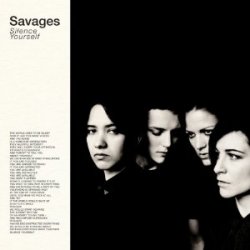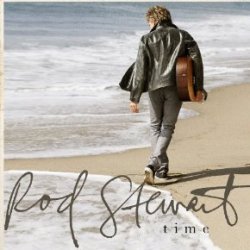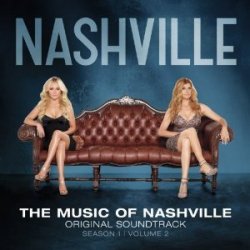So, what’s all this about?
For the past few years, I contributed music reviews to The Special Edition, CHUD’s column devoted to weekly new releases of entertainment media on pieces of round, metal-coated plastic: DVD, Blu-ray, games and CD’s. CHUD’s taking a different approach to game and video reviews, so this column will fill a gap by focusing on music releases.
One of the challenges to writing about new releases these days is that we’re in the twilight of the delivery of entertainment on physical media, and the tradition of new releases showing up in big cartons at your local Best Buy to be ready for purchase on Tuesday morning is becoming a vague memory for today’s consumer (among those who ever knew it at all). Over the past year or so, I found myself covering “new” CD releases that already had been available for digital download for weeks or months before the physical product hit the stores. So, while this column will still run on Tuesdays, and new releases will still be its focus, day-and-date won’t be a barrier to other things: coverage will also include recently-released albums, as well as the occasional catalog title, artist or genre overviews, and anything else that strikes me as worth writing about, available digitally or otherwise. My goal would be to make it worth reading, regardless of your level of interest in any of the particular releases.
A bit about me: I worked in the music business for 25 years: in radio, in marketing and promotion for a couple of major record labels, and as a buyer for a large retail chain (and since a few of the bands I was in actually got paying gigs, I could technically call myself a “professional” musician). My musical tastes are fairly wide-ranging, though like anyone I’m stronger in certain areas than others, and for personal pleasure I’m more likely to listen to rockabilly, surf guitar, desert blues, acid jazz, power pop or 70’s funk than, say, hip-hop, opera, or bluegrass. Regardless of genre, though, when something catches my ear, I’ll try to mention it. And for what it’s worth, I’m not much inclined to “rate” music: hopefully, I can communicate whether I think an album is worth your time, and why you might feel the same (or differently), without having to assign numerical scores.
Since I still have friends and contacts in the music business, I usually get to advance preview a couple of new releases every week, but for what it’s worth, it’s not in exchange for reviews (they don’t even know about my writing for CHUD). I get no freebies through CHUD, either, and the Amazon links you’ll find in the article are strictly a way to support the site: I don’t get anything from anyone for including them (this will also explain why I might occasionally provide a link which encourages you to purchase an album that sucks).
Feedback, comments, suggestions always welcome.
Like Manchester’s Pins, London’s Savages exist at the sweet spot where Joy Division  gives way to Sleater-Kinney. They’re an all-female band of decidedly VERY SERIOUS PURPOSE; like the Yeah Yeah Yeahs, they’re directing fans to put away cellphones during gigs, and are given to supplementing their music with manifestos: “The world used to be silent. Now it has too many voices“; their video for “Shut Up” begins with singer Jehnny Behn reinforcing the message: “You are distracted. You are available.” “Shut Up” opens their first full-length album with a clip of from Cassavettes’ Opening Night, with its tone of disquieting seduction (“Come on in… have a drink… how old are you? I’m sixty-five.“), before giving way to the monstrous sound of Ayse Hassan’s bass, a thundering wave that the entire album will ride on. She’s answered by the chattering guitar slash of Emma Thompson, while drummer Fay Milton’s style is open and spacious, letting the music breathe even where the lyrics tend to the claustrophobic (about half of the songs are mostly ranted repetitions of the titles: “No face! No face! No face!“, “Husbands! Husbands! Husbands!” “I am here! I am here! I AM HERE!!“) Like most serious young bands, they’re quite capable of tripping on their own sense of the profound (even a bleak instrumental gets into the act: “Dead Nature” = “nature morte” = “still life”… cute), but there’s an encouraging openness to the subject matter: for all the youthful musical ferocity, “City’s Full” Behn contrasts the “sissy pretty love” of the adolescent love song with the satisfactions of physical love in a time of bodily maturity, while both “Strife” and “Hit Me” are clear-eyed challenges to ideas about kink, both liberal and conservative. Come for the astringent musical roar, stay for the promise of a band that is ready to grow.
gives way to Sleater-Kinney. They’re an all-female band of decidedly VERY SERIOUS PURPOSE; like the Yeah Yeah Yeahs, they’re directing fans to put away cellphones during gigs, and are given to supplementing their music with manifestos: “The world used to be silent. Now it has too many voices“; their video for “Shut Up” begins with singer Jehnny Behn reinforcing the message: “You are distracted. You are available.” “Shut Up” opens their first full-length album with a clip of from Cassavettes’ Opening Night, with its tone of disquieting seduction (“Come on in… have a drink… how old are you? I’m sixty-five.“), before giving way to the monstrous sound of Ayse Hassan’s bass, a thundering wave that the entire album will ride on. She’s answered by the chattering guitar slash of Emma Thompson, while drummer Fay Milton’s style is open and spacious, letting the music breathe even where the lyrics tend to the claustrophobic (about half of the songs are mostly ranted repetitions of the titles: “No face! No face! No face!“, “Husbands! Husbands! Husbands!” “I am here! I am here! I AM HERE!!“) Like most serious young bands, they’re quite capable of tripping on their own sense of the profound (even a bleak instrumental gets into the act: “Dead Nature” = “nature morte” = “still life”… cute), but there’s an encouraging openness to the subject matter: for all the youthful musical ferocity, “City’s Full” Behn contrasts the “sissy pretty love” of the adolescent love song with the satisfactions of physical love in a time of bodily maturity, while both “Strife” and “Hit Me” are clear-eyed challenges to ideas about kink, both liberal and conservative. Come for the astringent musical roar, stay for the promise of a band that is ready to grow.
 I’m paraphrasing from memory, but Greil Marcus once said of Rod Stewart that his goal in life was to eat the juiciest steaks, drink the finest Scotch, stay in the most luxurious hotels, and fuck the hottest movie stars… and that if he had to become a great artist to get there, then so be it. And he did: with his voice a unique blend of Bobby Bland’s grit and Sam Cooke’s silk, his run of albums from ’69 to the mid-70’s rivaled the Stones’ output of the same period (and having seen both bands at the time, I can say that Rod and the Faces were at least as strong live as were Mick and company): from his Rabelsian picaresques of a young man’s progress through a world exchanging old values for new, to the way he ripped their own songs out of the hands of people like Elton John or Tim Hardin and made them completely his own, Stewart (with notable support from Ron Wood) crafted a musical vision every bit as personal and distinctive as any singer-songwriter this side of Dylan himself. The fall from there was kind of abrupt: Atlantic Crossing ditched his scrappy old Mercury band for a batch of studio pros, and for the most part, Stewart spent the next few decades coasting on self-love that was an admittedly honest reflection of the validation that fame brought him, but tedious at its best and cringingly unpleasant at its worst, culminating in his dreadful Songbooks series, where he demonstrated that having the greatest white-soul voice of his generation was no substitute for the level of investment and understanding that even borderline greats like Anita O’Day or Matt Monro could bring to that material, much less Sinatra or Fitzgerald.
I’m paraphrasing from memory, but Greil Marcus once said of Rod Stewart that his goal in life was to eat the juiciest steaks, drink the finest Scotch, stay in the most luxurious hotels, and fuck the hottest movie stars… and that if he had to become a great artist to get there, then so be it. And he did: with his voice a unique blend of Bobby Bland’s grit and Sam Cooke’s silk, his run of albums from ’69 to the mid-70’s rivaled the Stones’ output of the same period (and having seen both bands at the time, I can say that Rod and the Faces were at least as strong live as were Mick and company): from his Rabelsian picaresques of a young man’s progress through a world exchanging old values for new, to the way he ripped their own songs out of the hands of people like Elton John or Tim Hardin and made them completely his own, Stewart (with notable support from Ron Wood) crafted a musical vision every bit as personal and distinctive as any singer-songwriter this side of Dylan himself. The fall from there was kind of abrupt: Atlantic Crossing ditched his scrappy old Mercury band for a batch of studio pros, and for the most part, Stewart spent the next few decades coasting on self-love that was an admittedly honest reflection of the validation that fame brought him, but tedious at its best and cringingly unpleasant at its worst, culminating in his dreadful Songbooks series, where he demonstrated that having the greatest white-soul voice of his generation was no substitute for the level of investment and understanding that even borderline greats like Anita O’Day or Matt Monro could bring to that material, much less Sinatra or Fitzgerald.
Time is being more or less billed as Stewart’s “return to his roots,” and what’s depressing about it is that he takes the idea so literally: most of the songs here are obvious carbon copies of classics like “Maggie May” (which is literally name-checked) and “You Wear It Well,” with nothing as oddball-engaging as “Italian Girls” or “Los Olvidados.” Rod likes to remember himself as a “scruffy working class teenage troubadour with my out of tune guitar,” on “Brighton Beach,” but there’s no sense of his having gained much in the way of perspective in the years that passed. He seems to feel above the musical simplicity that once propelled his melodic sense: strings and synths and studio tricks wash all over the album, and the occasional nods to things like the finger-picking intro to the LP version of “Maggie May” feel as dropped-in and cheesy as his name-dropping influences from Ramblin’ Jack Eliot to Jack Kerouac to Louis Armstrong. And when the old scalawag does acknowledge the passing of the years, it’s with the obvious self-pity of “Can’t Stop Me Now,” and the marriage breakup “poisoned by your lawyer’s letter” in “It’s Over.” Stewart remains gifted with one of the most roughly evocative voices in the history of pop music, and there’s moments here and there when he can still bring a catch to the throat with his delivery of an innocuous phrase like “I woke up one morning to find you gone,” but it’s not an insight, just a way of reaching for past glories, and falling short, while reminding us just how ineffable they were. Time is sort of like the Stones’ Voodoo Lounge, smoothly rewriting hit after beloved hit, but with no Charlie Watts to kick it out of its complacency.
THE MUSIC OF NASHVILLE VOLUME 2 – VARIOUS ARTISTS
 I really haven’t watched that many soap operas, but I have to believe that Nashville is among the most head-snappingly ludicrous in the history of TV: the sorts of liaisons, betrayals, hookups, backstabbings, coincidences, and emotional crises that most soaps would invest weeks or months developing take place in between commercial breaks on this show. It has the requisite pretty people, and a good feel for backstage life, even if its “insider” take on the music business is as silly as its take on everything from relationships to pet ownership to urban redevelopment. But it’s become an addiction for me through fortuitous circumstance: the show’s creator, Callie (Thelma and Louise) Khouri just happens to be married to a genuine musician–and not just any musician, but Americana maven T-Bone Burnett, who (along with legendary producer/guitarist Buddy Miller) has crafted a musical vision of a modern Nashville that pays more respect to the Carter Family or Hank Williams than it does to today’s country scene dominated by hair metal and diva pop. Enlisting songwriters from Kasey Musgraves to White Dress’ Arum Rae to Elvis Costello, the first season of Nashville has produced musical performances (sung by the cast, with an ace supporting band) that embody country music’s traditional strengths without pandering to contemporary awards-show glitz.
I really haven’t watched that many soap operas, but I have to believe that Nashville is among the most head-snappingly ludicrous in the history of TV: the sorts of liaisons, betrayals, hookups, backstabbings, coincidences, and emotional crises that most soaps would invest weeks or months developing take place in between commercial breaks on this show. It has the requisite pretty people, and a good feel for backstage life, even if its “insider” take on the music business is as silly as its take on everything from relationships to pet ownership to urban redevelopment. But it’s become an addiction for me through fortuitous circumstance: the show’s creator, Callie (Thelma and Louise) Khouri just happens to be married to a genuine musician–and not just any musician, but Americana maven T-Bone Burnett, who (along with legendary producer/guitarist Buddy Miller) has crafted a musical vision of a modern Nashville that pays more respect to the Carter Family or Hank Williams than it does to today’s country scene dominated by hair metal and diva pop. Enlisting songwriters from Kasey Musgraves to White Dress’ Arum Rae to Elvis Costello, the first season of Nashville has produced musical performances (sung by the cast, with an ace supporting band) that embody country music’s traditional strengths without pandering to contemporary awards-show glitz.
The first volume of compiled music, released last fall, got the lion’s share of the show’s strongest material, notably in the Civil Wars-inspired pairing of Clare Bowen and Sam Palladio on “If I Didn’t Know Better,” the sweet ache of songs like Hayden Panatierre and Charles Esten on Musgraves’ “Undermine” and Esten and Connie Britton’s “No One Will Ever Love You,” and Panatierre’s sly workout on Costello’s brilliantly twisty “Telescope” (You left your troubles in my head, in my head / You left your secrets in my bed, in my bed). Bowen and Palladio open this second volume strong with “Fade Into You,” but the cutesy tween-girl cover of “Ho Hey,” while an undeniable high point of a recent episode, feels like empty calories coming right after it. Palladio’s rocked-up, overproduced “Gun For A Mouth” trips over David Poe’s clumsy metaphor, and while Connie Britton is an affecting actress, her singing tends to work best in the context of her TV storyline: “Stronger Than Me” and “Bitter Memory” don’t really hit home here the way they do in the show’s effective character montages. Bowen remains the feisty center of Nashville‘s best music: her “Looking For A Place to Shine,” and her second pairing with Palladio, on “I Will Fall,” are highlights of this collection. There’s a wealth of good material left for the next volume, including Bowen’s “One Works Better” and Britton’s slinky duet with Michiel Huisman (the show’s Jack White surrogate) on “Postcard From Mexico.” Haven’t heard yet if Nashville will be back next season, and I fear that, if it is renewed, we’ll probably see less time devoted to the music in favor of more preposterously stupid couplings. But on these albums, and miscellaneous single releases, Burnett and Miller have conspired to bring us at least a dozen songs and performances as strong as any the genre has produced in years, and another twenty or so that are more than listenable. Yee ha.
It’s actually a pretty chock-full week for fans of female-fronted Americana:
- Annie Up– The Pistol Annies. Once more, Miranda Lambert and company find the sweetest, catchiest ways to tell you that you’re a no-good horndog piece of shit.
- Mother– Natalie Maines. Once and possibly future Chick still makes no apologies about Bush, or much of anything else. Tough, tight, astringent. Covers Pink Floyd. Wha?
- These Wilder Things – Ruth Moody. The former Wailin’ Jenny too often lives up to her last name, as there’s not much variety to the album’s quiet, sober, tone, but the writing is intelligent, and her singing rarely settles for the easy or generic.
- American Kid– Patty Griffin. Last time out, Griffin’s occasionally bland prettiness got a kick in the ass from Jesus, of all people, and hanging with Robert Plant and Buddy Miller lit a fire or two, as well. The music’s still on the thin side, but a big chunk of this album functions as a passionate song cycle about war, families, and the intersection of the two.
- Golden– Lady Antebellum. For those who find Taylor Swift just a bit too edgy.
Other Notable 5/7 Releases
Cotton Mouth Man – James Cotton
Epitome of Torture – Sodom
God’s Great Dance Floor Step 1– Martin Smith
Nocturnes– Little Boots
Monomania– Deerhunter
More Than Just A Dream– Fitz & The Tantrums
Outlier- Kingdom Come
Prisoner of Conscious– Taalib Kweli
The Ride – Michael Stanley
Unstoppable Momentum – Joe Satriani
Volume 3 – She & Him
Walking Shadows – Joshua Redman
